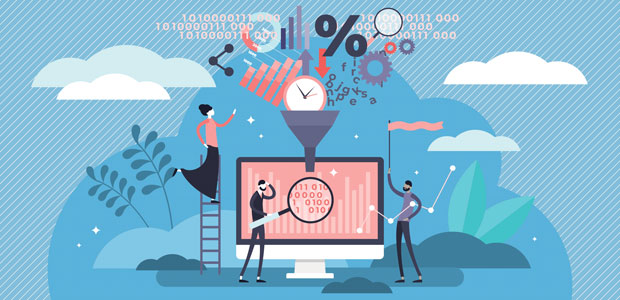
The Changing Face of Data collection
Data has come to dominate many aspects of our lives, with Big Tech companies tracking almost everything we do online or on our phones. It is estimated that by 2025 we will have created nearly 200 zettabytes worth of data as more and more devices record more and more information. That is an unimaginably large amount of data. A zettabyte is one sextillion (one followed by 21 zeros) bytes. The Bible is just four million bytes.
In fact, it was estimated as far back as 2013 that 90% of the data on Earth was created in the last two years. That figure is likely to be higher now. With this inexorable rise you would be forgiven for thinking that data collection is among the most modern and innovative industries out there, using state of the art technology to provide a comprehensive analysis of any subject. But that is not always the case.
For a good deal of data collection tasks, human impact and judgement is still a necessity. Many brands and consumer goods producers need to know and understand exactly how their products are being displayed in stores. They might want to know if the labels are facing the right way, or if they are being positioned next to competitors. The list of concerns is endless, but the ways to address them are not.
These kinds of jobs, and similar roles like customer service feedback, have long been completed by field research professionals and mystery shoppers. These professionals have in some cases been visiting the same supermarkets and shops for years, collecting vital information for their clients. But not on the scale and speed that we have come to expect from data collection in 2022.
This has created an issue that Shepper is solving. We are changing the face of data collection through technology and an app, giving real people the chance to collect real time market insights up and down the country, for real money. Using our technology, we can give brands access to up to 100,000 engaged consumers, blending consumer research with market intelligence.
The UK market research industry is worth around £5.1bn annually and generates far more besides for the brands and businesses that use it, and yet until this point, much of it looks the same as it has for decades. The majority of the industry operates in the realm of nine to five weekdays, despite the fact that life and consumer habits are becoming more and more flexible and varied.
By utilising our community of 100,000 'Shepherds', which is what we call the everyday people using our app and completing research tasks, we can generate real-time insights across the UK, at almost any time on any given day. This rapid collection of complex data often takes some training, which we provide through our app. Our Shepherds are paid fairly, and instantly, for their work. They often complete it as part of their normal daily routine.
As the cost of living has risen, more and more people have signed on to be Shepherds, looking for a simple way to top up their incomes. This gives our commercial customers the ability to get insights from all corners of the UK in a matter of hours, not days. But quantity and speed does not come at the expense of quality – our Shephards aren’t just walking smartphones, they are real people who are at home in the communities they are working in.
The flexibility of our community is at the heart of how we are changing complex data collection. Of course, for most people the collection of the data itself is not complex; it often involves simply answering a few questions and taking a few photos. From the data collected by the Shepherds we are able to analyse and uncover trends and create in-depth reports for our clients, providing insights that were previously inaccessible.
By changing how we collect data for our clients we have been able to access insights that previously would have been impossible – or prohibitively expensive – to uncover. Shepper is also creating a new way for people to engage with their community, local businesses and other consumers. We are working to change data collection one task at a time.

